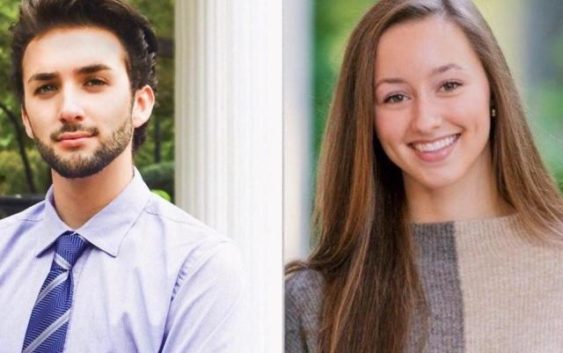- The Texanist: Texas Gets More Tornadoes Than Any Other State, but Don’t Freak Out
- U.S. Supreme Court says Texans can sue state for flood damage
- This is how many hurricanes NC State researchers predict this year
- NC State researchers predict above-average hurricane season
- Supreme Court rules in favor of property owners suing Texas over flood damage
UNC journalism students visit Bahamas months after Hurricane Dorian

Payton Tysinger and Jilly Kuehn, both broadcast journalism students at UNC-Chapel Hill, are visiting Marsh Harbor in the Bahamas’ Abaco Islands to see firsthand how residents are recovering months after Hurricane Dorian. This is their first report.
Abaco Islands, Bahamas — Hurricane Dorian made landfall in Marsh Harbor on Sept. 1. Nearly five months later, the residents are still living among the rubble that was their homes, desperate for progress from the Bahamian government.
Marsh Harbor was devastated by Dorian. The world took note, as did media around the globe. But that attention only lasted days.
Still in Marsh Harbor, the capital city of Abaco Island, and on Grand Bahama, there are people with stories of tragedy and loss, perseverance and humanity. These are the stories that many people have never heard, stories that have never been documented. This is why we are going to Marsh Harbor.
A few weeks after the storm hit and the international media blitz came to a standstill, my peer Jilly Kuehn and I were thirsting for updates but could not find them in domestic news outlets. So we came up with a plan to tell the stories of life post-Hurricane Dorian in the Bahamas ourselves.
A day later, we sat down with the Associate Dean of the UNC Hussman School of Journalism and Media, Charlie Tuggle. He recognized our passion. Thirty minutes after the meeting, I received a phone call telling me to make an itinerary.
Not only is this an incredible opportunity for us as student-journalists, it is also an opportunity for the journalism school’s Media Hub platform to show the importance of developing storytellers to tell important stories to the people we serve.
Having been given the green light, Jilly and I dove in. We read all of the articles we could and, to be transparent, sat down to educate ourselves on the geography of the islands. There are more than 700 of them.
In our research we found that, while North Carolinians in the Outer Banks were enduring Dorian, some other residents across the state traveled to the Bahamas to pick up the pieces there. Some Bahamians were also coming here.
From native Bahamians studying in the Triangle to volunteers traveling to provide critical aid to Dorian survivors flocking to the North Carolina coast for refuge, the people of North Carolina have experienced this tragedy in multiple facets.
As a young journalists born, raised and educated in North Carolina, Jilly and I feel called to tell these stories.
To me, this five-day journey to Marsh Harbor is daunting; journalists, environmentalists, and government officials all call this the most devastating natural disaster they have ever seen. I believe them.
Nonetheless, I will be among the people of Marsh Harsh and Freeport who live this tragedy day in and out. I know that we are extraordinarily privileged to have the opportunity to tell their stories. Hopefully we can learn from their courage, too.
Ultimately, we go seeking what the Bahamian people who survived this storm want us to know. We have an itinerary, but not not an agenda.
As we embark on this learning experience, we will keep you all updated on WRAL’s Facebook and Instagram. We cannot wait to share with you the incredible stories of the people of Abaco, Grand Bahama, and North Carolina. Stay tuned!
Jilly Kuehn is a UNC-Chapel Hill junior from Raleigh studying broadcast journalism. In her free time she enjoys cheering on the Tar Heels and taking classes at her favorite Pilates studio.
Payton Tysinger is a junior at UNC-Chapel Hill studying broadcast journalism and political science. When not at school or work, Payton enjoys traveling throughout North Carolina and around the world with his friends.